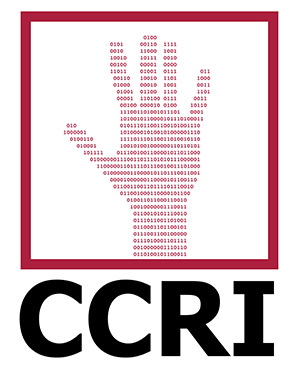 After joining forces with Miami Law Professor Mary Anne Franks, as well as other legal experts and advocates, Dr. Jacobs incorporated her work on the campaign into the CCRI. While the Initiative is currently focused on the issue of nonconsensual pornography, the organization’s long-term goals is to address online discrimination and abuse more broadly.
After joining forces with Miami Law Professor Mary Anne Franks, as well as other legal experts and advocates, Dr. Jacobs incorporated her work on the campaign into the CCRI. While the Initiative is currently focused on the issue of nonconsensual pornography, the organization’s long-term goals is to address online discrimination and abuse more broadly.
CCRI has recently settled into a new home at Miami Law. The Initiative offers opportunities for law students and other university students eager to apply their professional skills to a cutting-edge issue with real-world implications.
“What’s incredible is just how quickly CCRI's hard work has turned into positive change,” said Jacobs, CCRI’s President and Executive Director. “When CCRI's first campaign, End Revenge Porn, launched in 2012, only 3 states had laws against NCP, and none of the tech companies were taking decisive action on the issue.
In three years, though, CCRI has helped catalyze 23 states to act against nonconsensual porn, draft a federal bill, and collaborate on new policies from major tech leaders like Facebook, Google, and Twitter banning NCP from their platforms.”
 Professor Franks “has really been CCRI's secret weapon. She knows the intricacies of the law around this issue better than anyone else and has advised legislators and policymakers across the globe and in more than 30 U.S. states so far,” said Jacobs.
Professor Franks “has really been CCRI's secret weapon. She knows the intricacies of the law around this issue better than anyone else and has advised legislators and policymakers across the globe and in more than 30 U.S. states so far,” said Jacobs.
Franks serves as both the Vice-President of CCRI and its Legislative and Tech Policy Director. She is the primary architect of the Intimate Privacy Protection Act, a federal bill prohibiting nonconsensual pornography, due to be introduced in Congress by Representative Jackie Speier (D-CA) on September 9. She and other members of CCRI have worked closely with companies like Facebook and Twitter to develop design-based solutions to nonconsensual pornography and other forms of online abuse. The online forum Reddit banned nonconsensual pornography in February, followed by Facebook and Twitter. Google and Microsoft recently announced that they would honor requests to remove NCP from search engine results. All of these companies have also implemented reporting procedures – many designed in collaboration with CCRI - to expeditiously investigate complaints.
CCRI takes a four-pronged approach to address nonconsensual pornography. In addition to legislative and technological reform, the Initiative also provides victim support and informational campaigns. CCRI offers a 24-hour crisis helpline and legal referral services for victims, and raises awareness about the issue through media interviews, op-eds, formal presentations, and social media posts.
Visit www.cybercivilrights.org and www.endrevengeporn.org for more information about CCRI’s work and their End Revenge Porn campaign.

